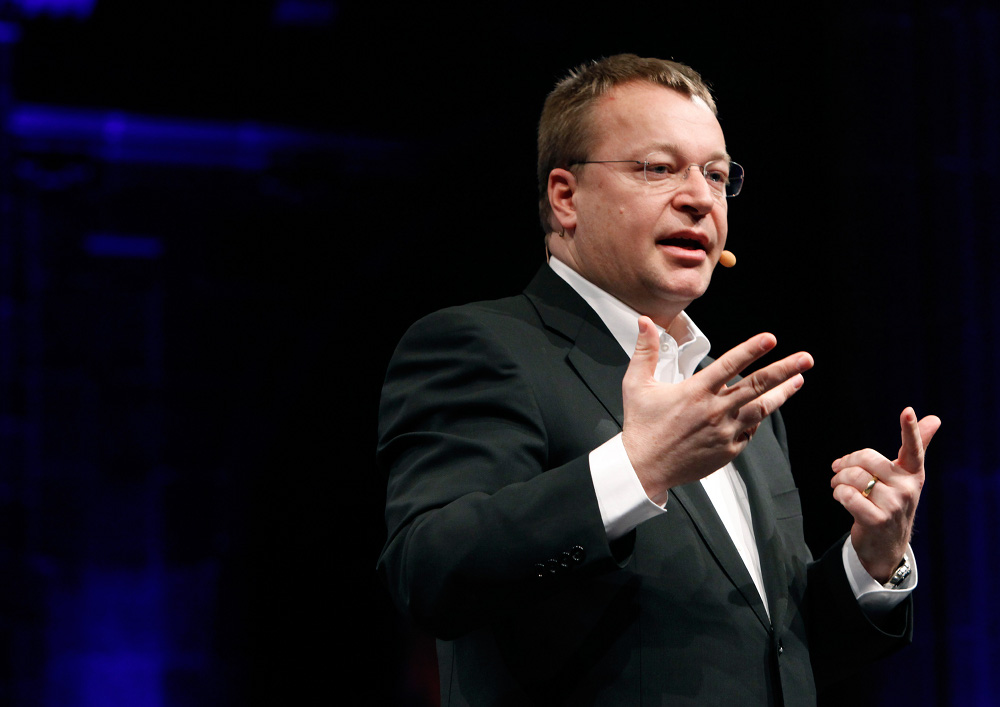
Former Nokia CEO Stephen Elop has retired from Microsoft as part of he firm’s huge reorganization process, just weeks to the firm’s huge July 29 Windows 10 launch.
In an email to all employees, Microsoft CEO Satya Nadella said, “Stephen and I have agreed that now is the right time for him to retire from Microsoft. I regret the loss of leadership that this represents, and look forward to seeing where his next destination will be.”
Elop was running the Microsoft Devices Group which was responsible for Lumia devices which according to insiders are not part of the greater planner Satya has for the company. In facr last year, he wrote a 3000 word email saying the firm’s core focus was on mobile first and cloud first thereby moving into cloud services and entreprise productivity services and not devices.
Though Microsoft is not entirely killing Lumia devices on Elop’s exit, there’s a high probability that the firm doesn’t need the devices to showcases its Windows ecosystem we are enjoy on PC. Microsoft’s suite of appications are already available on every operating system and even work better on Android and iOS than on Windows Phone itself.
Having a market share of just 2.7 percent is not competitive and Microsoft should have let Nokia just die than buy for the $7B. Microft under Steve Balmer wanted devices, to not only showcase its Windows ecosystem but take on Apple’s iPhone and Samsung’s device family but the entry of Nadella changed everything.
“When Stephen Elop returned to Microsoft, he oriented MDG to create the best Microsoft experience through its devices, inclusive of hardware, software and services,” Nadella said in the email. “He has been a strong advocate of the need to drive focus and accountability around the delivery of these experiences and has helped drive tighter alignment toward the ambition of more personal computing.”
Though Nokia was an error to Microsoft, the firm is not totally killing devices, the Lumia will be around for sometime, say two or three year, the Surface tablets, Xbox and Microsoft’s HoloLens are here to stay.
“I’m certain that matching our structure to our strategy will best position us to build products and services our customers love and ultimately drive new growth,” said Satya.
Other executives leaving with Elop include Kirill Tatarinov, the former head of Microsoft Dynamics, Eric Rudder, a 25-year old Microsoft veteran who led the Server and Tools business, Microsoft Research, and recently Education services. The third is Mark Penn who’s leaving to start his owm private equity fund.
“We are aligning our engineering efforts and capabilities to deliver on our strategy and, in particular, our three core ambitions,” said Satya Nadella, CEO of Microsoft. “This change will enable us to deliver better products and services that our customers love at a more rapid pace.”
Microsoft’s Executive Vice President Terry Myerson will lead the new Windows and Devices Group (WDG) which is focused on enabling more personal computing experiences powered by the Windows ecosystem. The firm says the new team will support the Operating Systems Group and Microsoft Devices Group.
Another group will lead the Cloud and Enterprise team focused on building the intelligent cloud platform that powers any application on any device as well as high-value infrastructure and business services key to managing business processes such as data and analytics, security and management, and development tools. The third group will be the Applications and Services Group (ASG) focused on reinventing productivity services for digital work that span all devices and appeal to the people who use technology at work and in their personal lives.
Meanwhile, LG Electronics yesterday signed a royalty-bearing smartphone patent license agreement with Nokia. LG will have access to over 60 licensees for Nokia’s 2G, 3G and 4G mobile communication technologies. Nokia’s CEO Rajeev Suri also yesterday told Germany’s Manager Magazin that the firm plans to start designing and licensing handsets again in 2016 and will work with suitable partners to make the smartphones.
Nokia aims to only design the smartphones for its partners and license the brand name to them. Suri was particular that Nokia will not literally build the smartphones on its own as that violates its agreement with Microsoft.
Why was Nokia an error?
After buying Nokia’s handest business for $7.2 billion, Microsoft could only claim a 2.7% smartphone market share and making losses for the firm.

